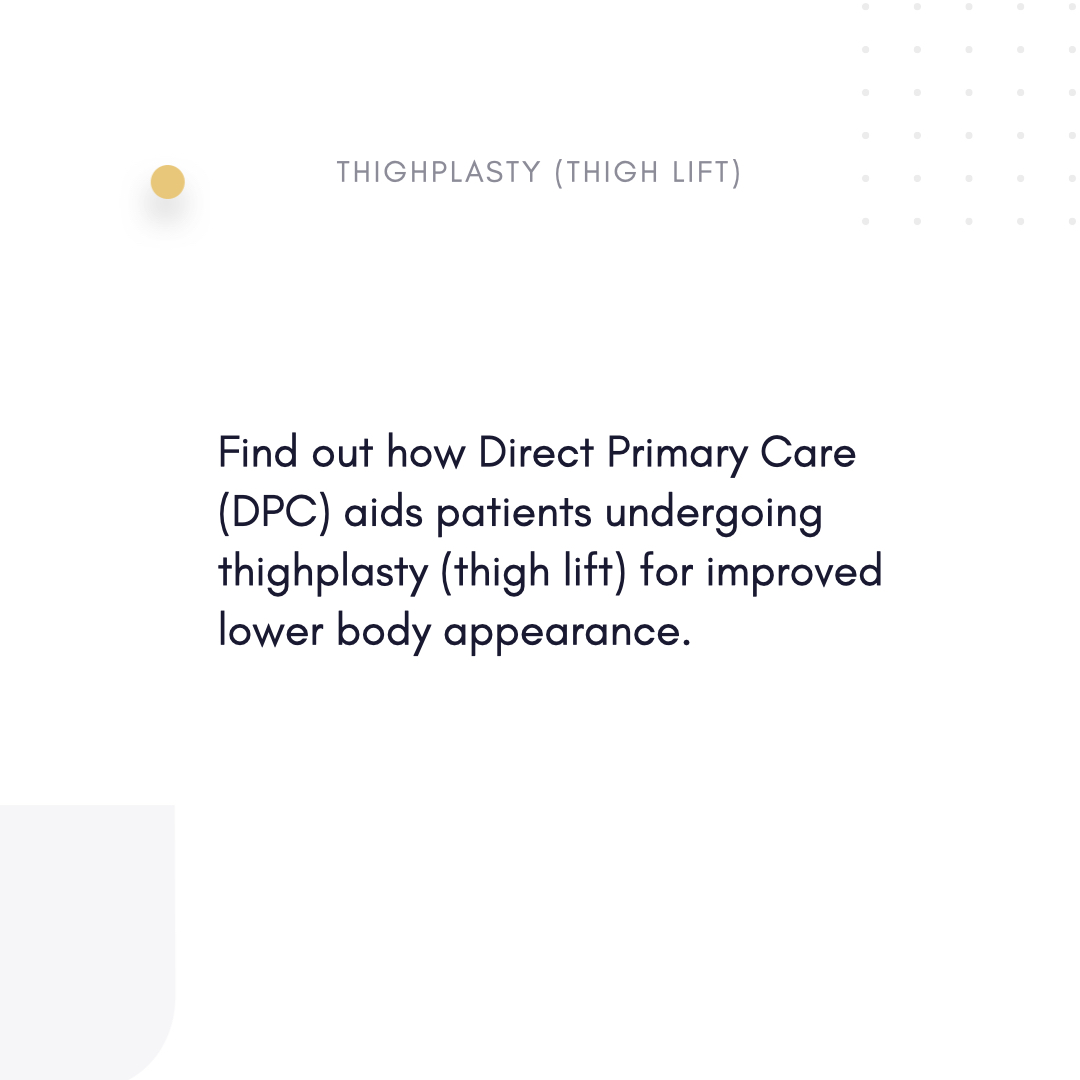



By removing excess skin and fat from the thighs, thighplasty, commonly known as a thigh lift, is a surgical procedure intended to reshape and contour the thighs. Patients who are considering or undergoing thighplasty can benefit from Direct Primary Care (DPC) in a number of ways. Here are some ways DPC can assist patients with these procedures:
Initial Consultation and Referral:
As part of their initial consultations, DPC providers discuss patients' concerns and aesthetic goals related to thighplasty. If deemed appropriate, they refer patients to qualified plastic surgeons who perform thigh lift surgery.
Collaborative Care Coordination:
During the thighplasty process, DPC providers work closely with plastic surgeons and other healthcare providers. Throughout the treatment journey, they facilitate seamless communication between the patient, surgeon, and any other specialists.
Pre-Surgical Evaluation and Preparation:
To determine whether a patient is healthy and eligible for thighplasty surgery, DPC providers perform thorough assessments. They may perform pre-operative screenings, review medical history, and address any pre-existing conditions that could affect the surgical outcome.
Patient Education and Informed Decision-Making:
A DPC provider explains the benefits, risks, and expected outcomes of thighplasty to patients. In order to ensure patients are well-informed and empowered to make informed decisions about their treatment, they provide detailed explanations and answer questions.

Accessibility and Continuity of Care:
Patients benefit from ongoing support and continuity of care from DPC before, during, and after their thighplasty procedure.
Individualized Treatment Approach:
During thighplasty, DPC providers consider each patient's unique anatomy, aesthetic preferences, and medical history to develop personalized treatment plans.
Comprehensive Pre- and Post-Operative Support:
In order to promote optimal healing and recovery after thighplasty surgery, DPC providers provide comprehensive support before and after surgery, including lifestyle changes, medication management, and post-operative care instructions.
Emotional and Psychological Support:
Cosmetic surgery such as thighplasty elicits a wide range of emotions and concerns in patients. Throughout the process, DPC providers help patients feel more confident and reassured by offering emotional support and addressing any psychological factors associated with the procedure.

Preparation Guidance:
They ensure that patients are well-prepared and understand what to expect on the day of surgery by providing detailed pre-operative guidance, such as fasting instructions, medication adjustments, and lifestyle changes.
Post-Operative Care Management:
To ensure a smooth and comfortable recovery after thighplasty surgery, DPC providers monitor patients closely during the initial recovery period. They provide instructions on wound care, pain management, and activity restrictions.
Follow-Up Visits and Monitoring:
A DPC provider schedules follow-up visits to assess patients' progress and monitor their healing process. Any concerns or complications that may arise postoperatively are addressed promptly by the provider.
Long-Term Wellness Support:
Besides the immediate recovery period, DPC offers long-term wellness support to patients who undergo thighplasty. To maintain the results of the procedure and promote overall satisfaction with the outcome, providers provide advice on skincare, scar management, and lifestyle modifications.
Previous Post